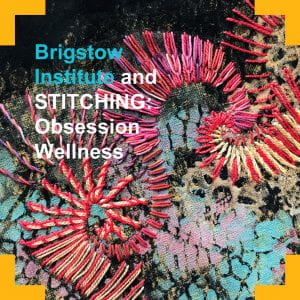
STITCHING – Obsession – Wellness was selected by Brigstow Institute to be one of its Seedcorn-funded projects this year.
Our research aims to scientifically test the therapeutic benefits of stitch by measuring whether the rhythmic, repetitive action of stitching can calm and focus the anxious brain into a meditative state. Through this work we seek to contribute to a re-evaluation of the 19th century asylum as a therapeutic space. The research will also explore practices of “non-productive” or subversive needlework within 19th century asylums, which displayed emotional and creative expression. We will assess the emotional role of both therapeutic and subversive stich and deepen understanding of the relationship between women, creative work and wellness.
The team:
- Merle Patchett(Geographical Sciences) is a human geographer interested in theorising and examining historical geographies of craftwork, skill and apprenticeship including the historic gendering of skill.
- Jan Connett(independent textile artist and Bristol Health Partners) is interested in behaviours that tip between self-support and obsession. She will work collaboratively to understand and interpret the intent of 19th century stitchers and the contribution of their creativity to wellbeing.
- Amber Roguski(Physiology, Pharmacology and Neuroscience) will co-design and carry out EEG experiments to investigate potential effects of stitching on emotions.
- Anwyl Cooper-Willis brings extensive knowledge of the history of Glenside Hospital Museum and its relationship with sewing.
- Stella Man (Independent artist and Glenside Hospital Museum)
- has experience of involving people in projects and leading co-produced workshops.
Our advisors:
- Claire Braboszcz’s (Experimental Psychology) interests lie in attention and mental states such as meditation and hypnosis and is an expert in EEG data recording and analysis.
- Thomas Roeske (Prinzhorn Collection, Heidelberg University) specialises in the interpretation of artworks in psychiatric and psycho-historical contexts.

